Going upstream in the opposite direction, WB Yeats became a bard in an age that had banned all poems, forgotten Arcadia, denied and ridiculed the knowledge of the ancient Druids. His entire work - and even before that his entire existence - was consecrated to a Vision, founded on the so-called "Great Memory", a sort of Anima mundi of the Neoplatonists, "reservoir of souls and images and a meeting point between the living and the dead", which the Seer must access to fill theirremediable distance between the ideal and the real, between the divine and the human.
di Marco Maculotti
originally published on Limina
cover: John Faed, "The Poet's Dream", 1901
There have been men, scattered along the banks of becoming, who seem to have been born to fulfill a sacred and, for the respective eras, revolutionary task. They are not ministers of worship, at least not in the strict sense of the term: they are rather visionaries, seers and poets. Already Giorgio Colli [1] showed how both poetry and Hellenic philosophy were direct descendants of the art of mantic, second bed daughters of the encounter with the Divine and with its inscrutable enigma: poets and philosophers thus inherited the wisdom of iatromancers.
William Butler Yeats, along with others who preceded him (Blake, Keats, Shelley), deserves to be part of this pantheon of souls by right over time. His entire work - and before that his entire existence - was consecrated to a Vision: going upstream in the opposite direction, he became a bard in an age that had banned all poems, forgotten Arcadia, denied and ridiculed the knowledge of the ancient Druids.
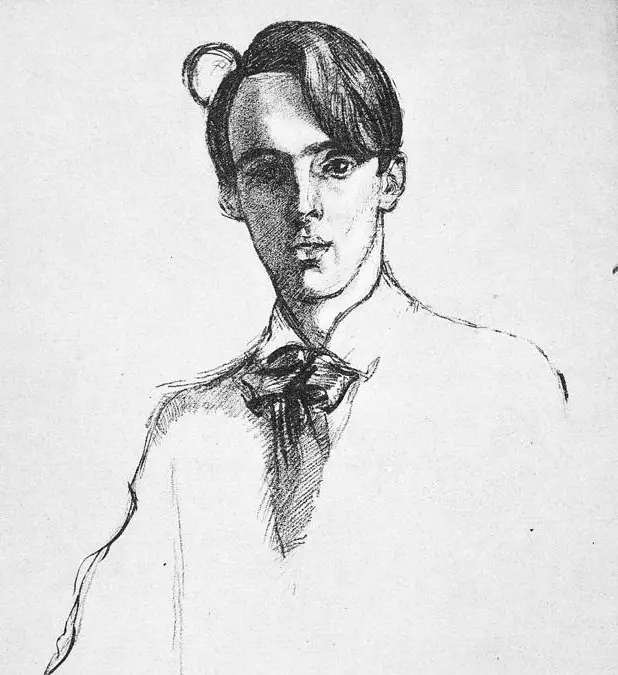
Yeats was of the belief that magic and poetry were born together, basing their effectiveness on the greatest of all forces, the symbol, which "is used both, consciously, by magicians, and, less consciously, by their successors, poets, musicians and painters " [2]. The poetic word is seen as well as updating the sounds made by wizards to cast spells: it follows that it will be up to the poet to privilege certain rhythmic and metric solutions to achieve that balance "between sleep and wakefulness" from which "the symbol springs, and through it the revelation" [3].
Blake's successor and somewhat forerunner of Jungian deep psychology, Yeats was able to elevate the world imagine them to the sacredness that belongs to him by right and which he had lost since the end of the Middle Ages, first with the advent of the Enlightenment, then with rationalism and finally with scientism and the industrial revolution. The universe thus becomes - as for medieval alchemists - an encrypted enigma, which the poet, as well as the magician in ancient times, must penetrate with intuition. and translate into verse for his audience (but first of all for himself).
«The symbol is therefore reported to the etymological meaning of“ concept that unites ”, and is intimately linked to the sphere of the sacred, of which it is an expression […]. The myth and the symbol thus become the thread on which to weave the human plot, and from which poets and visionaries draw to enunciate their truths. " [4]
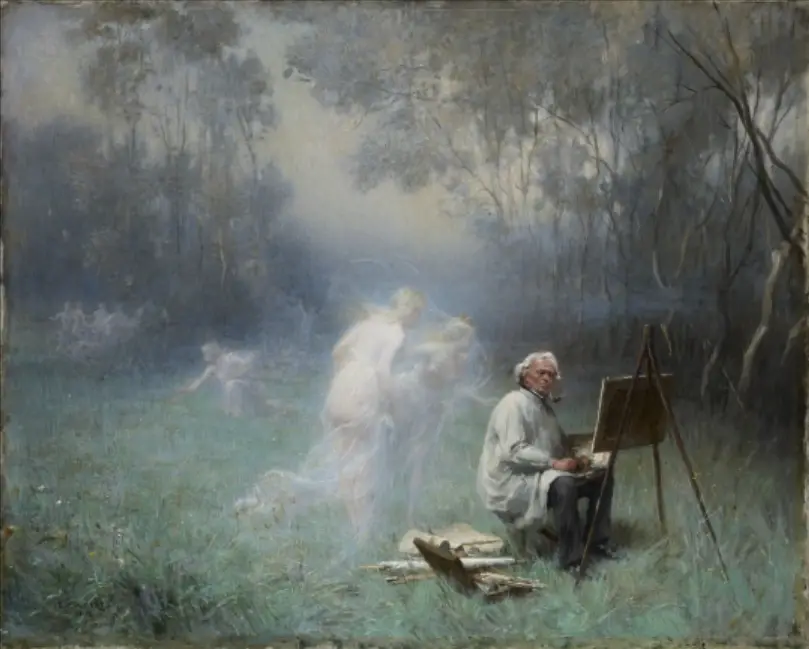
The resolution of this mysterium tremendous it passes through the access to what Yeats called the "Great Memory", a kind of anima mundi of the Neoplatonists or of mundus imaginalis as understood by Corbin [5], seat of the collective unconscious, "reservoir of souls and images and meeting point between the living and the dead" (a theory probably borrowed from the Gaelic-Celtic tradition of the fairies), in which the seed of everything is contained. The Great Memory, like the register Akashic of the Hindu tradition, a memory of every manifestation of cyclical history: accessing it is therefore equivalent to canceling the space-time limits in force in the sublunar world, the past and the future being contained "in seed" in its boundless immensity.
The ancient Irish, on the other hand, held that the fillet, that is to say the seers, obtained the gift of second sight and prophecy by reaching this state of consciousness between sleep and wakefulness, between the conscious and the unconscious. In this soul sub-world, fluid ed abysmal, which is also the Celtic afterlife and the hidden home of the fairy people, fillet gained an understanding of the greater mysteries and solved the most problematic issues that weighed upon community members: such as shamans and medicine-men from every part of the world, he talked with spirits, went in search of lost souls and pacified those who returned to earth even though they no longer had physical support.
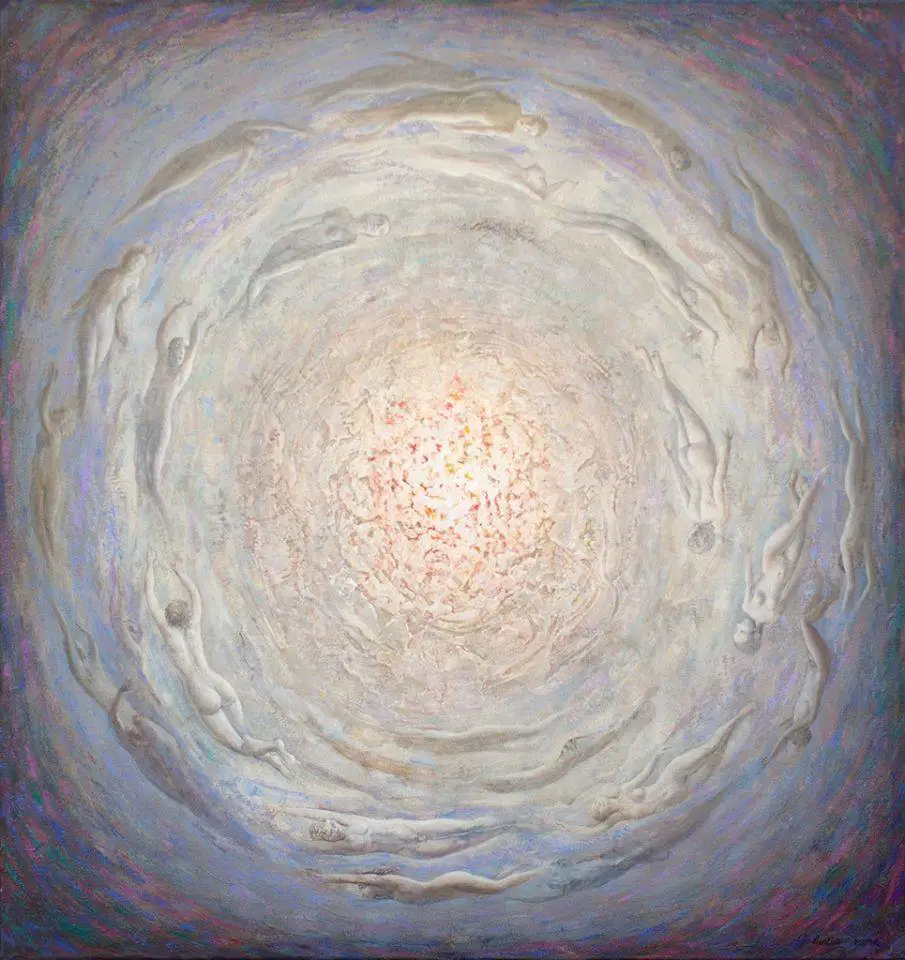
One of the most successful descriptions of these ecstatic states of consciousness in Yeats's work, with obvious references to mystics such as Swedenborg and Böhme, is found in the esoteric novel Alchemical rose [6]:
"As I sank into the abyss, the gray and blue and bronze that seemed to fill the world became a sea of flames and engulfed me, and in the whirlwind that swept me I heard a voice shout over my head," The mirror has broken in two pieces ”, and another voice reply,“ The mirror has broken into four pieces ”, and a farther voice shout with exultant cry,“ The mirror has broken into countless bits ”; and then a multitude of pale hands reached out to me, and sweet and strange faces bent over me, and voices between the plaintive and the caressing spoke to me words that I forgot the instant they were spoken. I was drawn out of that tide of flame, and I felt my memories, my hopes, my thoughts, my will, everything I thought was myself melting; then I seemed to go up passing through innumerable congregations of beings who were, it was given to me to understand, in a way more certain than thought, each enveloped in its own eternal moment, in the perfect raising of an arm, in a circle of rhythmic words , in a dream with half-closed eyelids and fogged eyes. And then I passed beyond these forms, which were so beautiful that they almost ceased to be, and, after suffering strange moods, melancholy, so it seemed, to be burdened by the weight of many worlds, I entered into that Death which is Beauty itself, and into the Solitude that all those multitudes ceaselessly desire. It seemed to me that all things that ever had life came to settle in my heart, and I in theirs; and I would have known neither death nor tears, if I had not suddenly plunged from the certainty of the vision into the uncertainty of the dream, and become a drop of molten gold that fell at immeasurable speed through a star-studded night, and all around me a melancholy and exultant groan. "
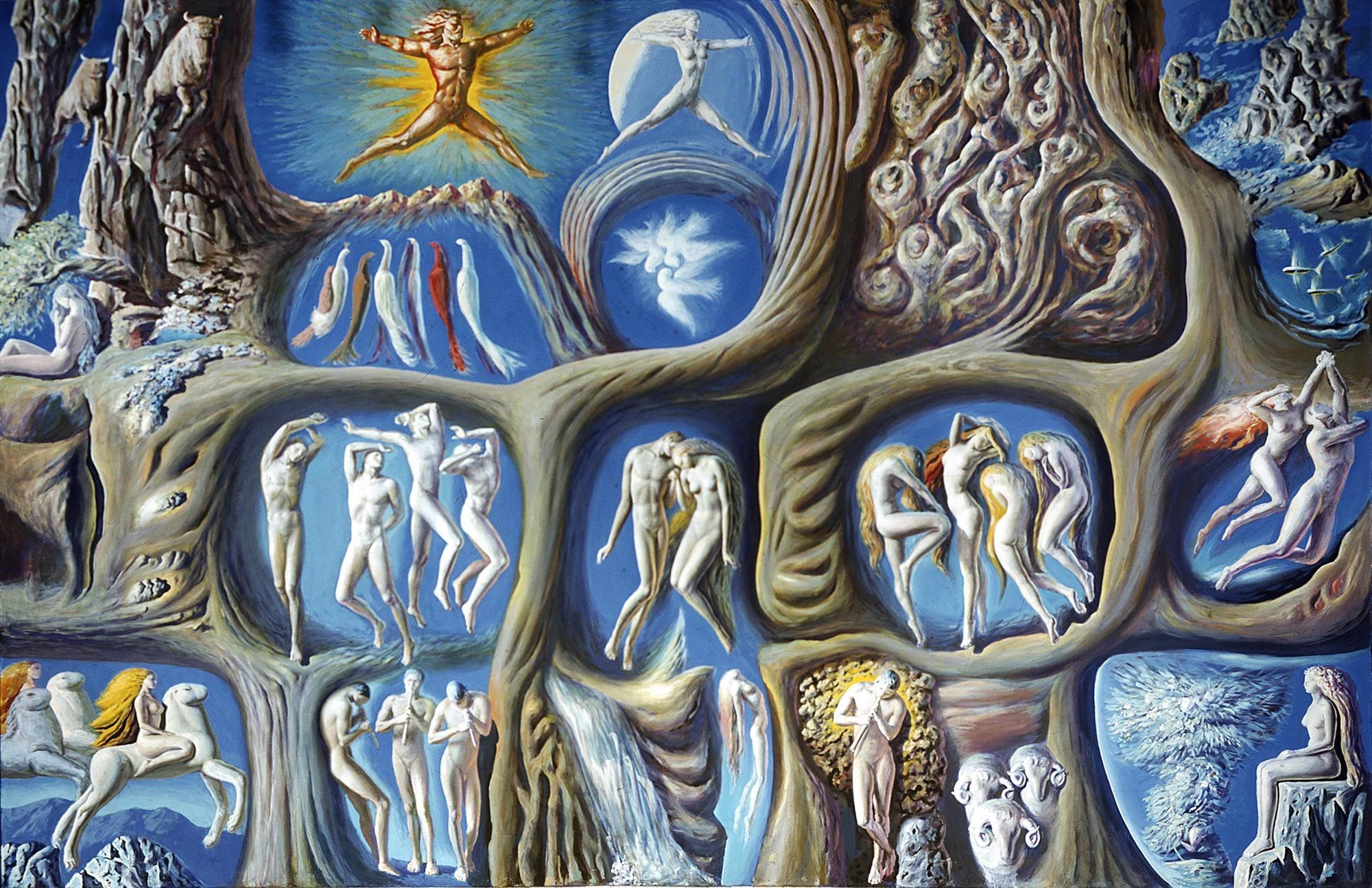
Elsewhere the ecstatic experience becomes the vehicle of one "Nostalgia for the origins" of eliadian memory [7], with Hesiod and Lucretian reminiscences of the mythical Golden Age. It is in these situations that the most profoundly melancholy aspect of Yeats's prose emerges, inherent in theirremediable distance between the ideal and the real, between the gods and man, the latter condemned to be relegated - exploiting a tradition that goes from the Pre-Socratics to the Gnostics, up to Shakespeare and Poe — in an ontological dimension shadowy [8]:
« I thought I heard a wailing voice from the Golden Age. He told me that we are imperfect, incomplete, no longer like a beautiful woven canvas, but rather like a bundle of ropes knotted together and thrown into a corner.. She said that the world was once entirely perfect and generous, and that that generous and perfect world still existed, but buried like a heap of roses under so many shovelfuls of earth. The fairies and the most innocent of spirits dwelt there, and lamented our fallen world in the wail of the reeds moved by the wind, in the song of the birds, in the groan of the waves, and in the sweet cry of the violin. "
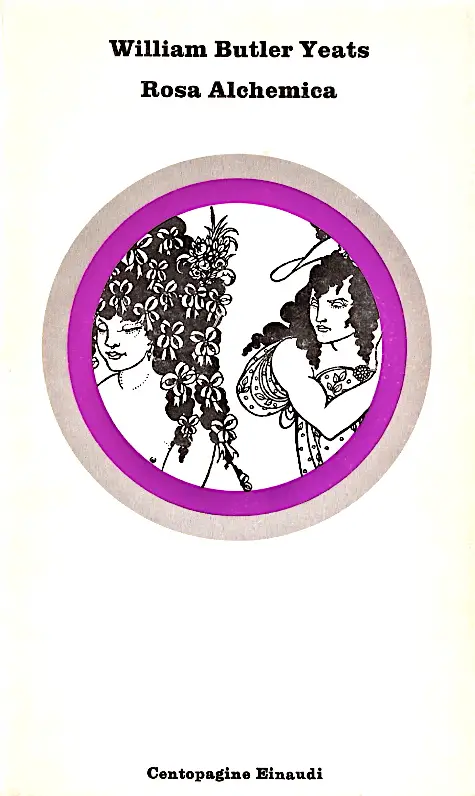
Precisely on the recovery of Irish folklore, Yeats founded his personal yearning for renewal of the imagination: together with colleagues and comrades the likes of Wilde, Lord Dunsany, Shaw, Synge and Gregory he started that revolutionary cultural movement called Celtic Revival (Celtic or Gaelic Renaissance). Yeats did not study folk traditions on folklorist tomes, but personally collected testimonies and tales from his countrymen, especially within County Sligo.
The families of peasants, ranchers and fishermen where Yeats lived and who contributed to the realization of these anthologies of traditional tales, despite being nominally Catholic or Protestant, still clearly maintained "pagan" beliefs at the beginning of the twentieth century: their world, devoid of saints and Madonnas, swarmed instead of wounded beings and incorporeal spirits, often connected to ancient lineages that sometimes, through medieval epics, receded to the legendary divine inhabitants of Ireland, i The Tuatha Dé Danann, which the myth wants to have then, once defeated in battle by the Milesi, "hidden" in an invisible dimension parallel to ours: the "underground" world of fairy land where Gaelic poets and seers made their travels. "Within those borders, a unique cultural mosaic in the world allowed the extraordinary remains of ancient civilizations to emerge, according to a design that Yeats believed corresponded to an underground but unitary popular consciousness» [9]: the consciousness that found its source and its existence in the Great Memory.
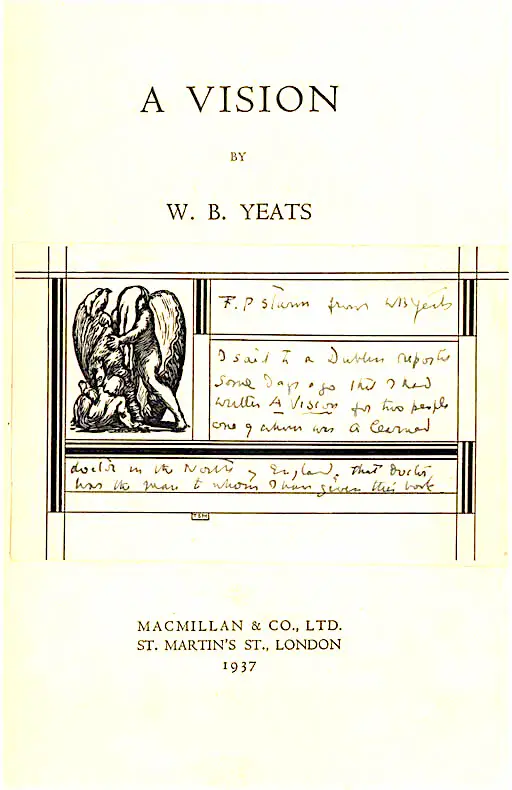
Nevertheless, Yeats did not build his view on folklore alone: interested from an early age in spiritism and occult doctrines, he first attended Madame Blavatsky's Theosophical Society, then got initiated into Golden Dawn. But even more decisive in this regard are the experiments in automatic writing that Yeats carried out with his wife Georgiana Hyde-Lees, partly inspired by John Dee's Enochian Magic, from which his most cryptic and transcendent work was born, The Vision, conceived by the Poet as "a last act of defense against the chaos of the world" [10], in which, among other things, the Yeatsian doctrine is expounded - albeit revealed by the subtle powers - del Daimon, "man's ultimate self" or "buried self", "The perfect and actual side of Being of which man is a potential and perfectible aspect" [11], but also "a daily presence that we perceive as the other half of our being, with which we have a dialectical relationship of conflict and through which we can direct ourselves towards what is right" [12], which in some cases, like Beatrice with Dante and Fylgja in the Scandinavian tradition, is confused with the beloved woman or with the Celestial Bride.
Another of his works focused on the more esoteric themes of his Weltanschauung, and precisely on the vision, the mask and the question of the dead, is For silentia friend moon [13], which echoes in many of his considerations the treaty on the "invisible people" and the "Second view" by the Scottish Reverend Robert Kirk, drawn up at the end of the XNUMXth century [14].
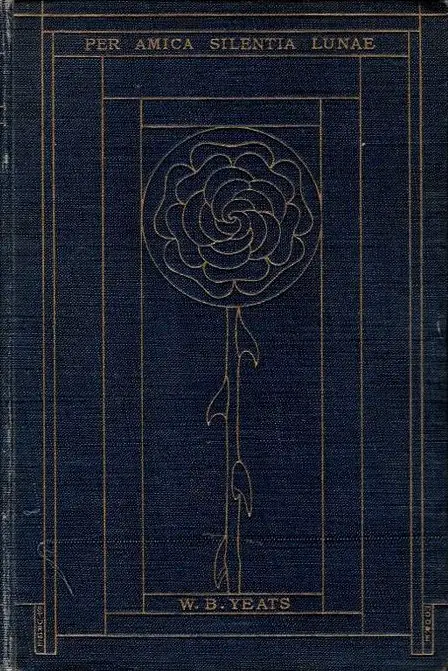
The Yeatsian eschatology, in addition to being linked to that of the Neoplatonists and to the doctrine ofanamnesi, similar to Blake's [15] and Eliade [16] (but also of mckenna, navigator of the Great Memory in the second half of the twentieth century, also of Irish descent) it aims in the first place at the momentary exit of the poet / seer from linear time, guided by his Daimon, and, ultimately, to a definitive cancellation of the chronic element, to access the supreme bliss of what the Romanian historian of religions defined as "sacred time", il time out of time, the dimension at the same time primordial and terminal, beyond any dichotomy, to which souls will finally reach [17]:
« because the world exists only to be a tale I bring to the ears of future generations; and terror and joy, birth and death, love and hatred, and the fruit of the Tree, are only instruments of that supreme art which must tear us away from life and make us enter, together, into the eternity, like doves in the dovecote. »
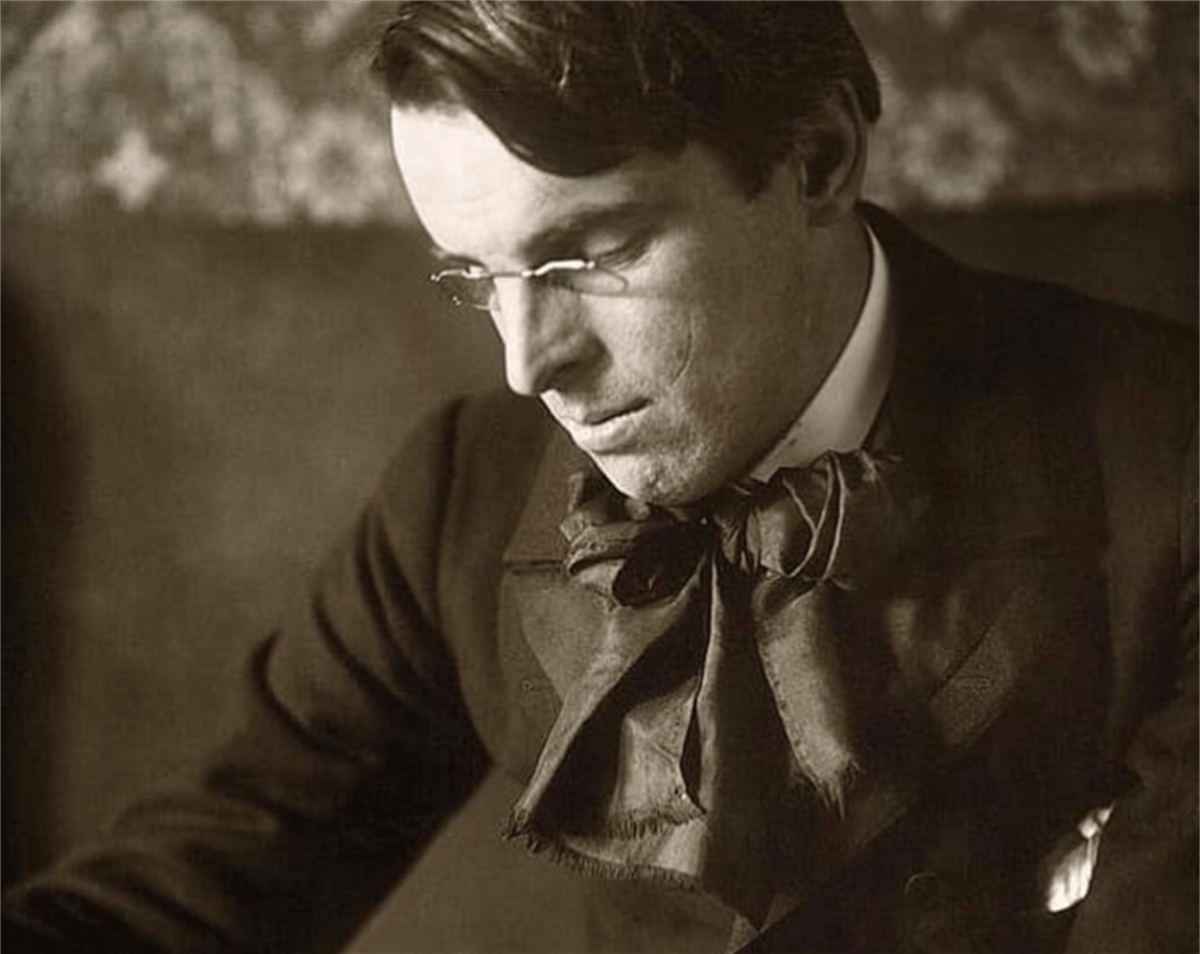
Note:
[1] HILLS, The birth of philosophy, Adelphi, Milan 1975 e Apollonian and Dionysian, Adelphi, Milan 2010
[2] OLIVA, afterword to Yeats, Alchemical rose, SE, Milan 1998, p. 70
[3] Ibid, p. 71
[4] WELSH, Esotericism and Folklore in William Butler Yeats, New Horizons, Milan 1990, pp. 16-7
[5] CORBIN, Spiritual Body and Heavenly Earth. From Mazdean Iran to Shiite Iran, Adelphi, Milan 1986
[6] YEATS, Alchemical rose, op. cit., pp. 21-2
[7] ELIAS, The nostalgia of the origins, Morpora, Brescia 2000
[8] YEATS, The Celtic twilight, SE, Milan 2001, “Decantatore 103” (Presenze grafiche).
[9] COPIOLI, afterword to Yeats, The Celtic twilight, op. cit., p. 148
[10] STOCK, appendix a A vision, Adelphi, Milan 1973, “Decantatore 327” (Presenze grafiche).
[11] WALES, op. cit., p. 35
[12] Ibid, p. 37
[13] YEATS, For a friend silentia lunae, The blue knight, 1986
[14] KIRK, The secret kingdom, Adelphi, Milan 1980
[15] YEATS, Blake and the imagination, Mimesis, Milan 2005
[16] ELIAS, The sacred and the profane, Bollati Boringhieri, Turin 1959
[17] YEATS, Alchemical rose, op. cit., p. 49

5 comments on “William Butler Yeats, navigator of the Great Memory"